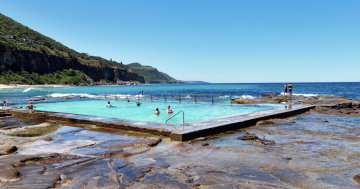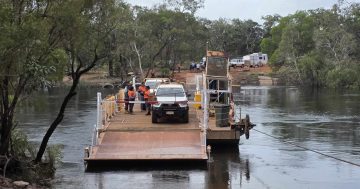Reviewed by Robert Goodman.
By Kate Sawyer, Hachette.
 At a time when it seems like every second book is post-apocalyptic it is hard for new novels in this very popular sub-genre to cut through. Kate Sawyer’s debut, The Stranding, tries in a couple of ways, but the most spectacular is her opening scenes involving her main characters and a beached whale. The rest could possibly be seen as an extremely extended metaphor as Sawyer contemplates the benefits of a stripped back post-apocalyptic lifestyle (if only all of those other humans didn’t have to die to make it happen).
At a time when it seems like every second book is post-apocalyptic it is hard for new novels in this very popular sub-genre to cut through. Kate Sawyer’s debut, The Stranding, tries in a couple of ways, but the most spectacular is her opening scenes involving her main characters and a beached whale. The rest could possibly be seen as an extremely extended metaphor as Sawyer contemplates the benefits of a stripped back post-apocalyptic lifestyle (if only all of those other humans didn’t have to die to make it happen).
The opening of The Stranding finds English backpacker Ruth alone on a New Zealand beach desperately trying to help a beached, dying whale. She is being watched by Nik, a New Zealander who comes down to tell her to stop wasting her time. This is when the end of the world happens. The two shelter from a distant, spectacularly powerful explosion in the mouth of the whale and in the aftermath appear to be the only survivors. While this is happening, and in its aftermath, the narrative alternates with the tale Ruth’s life before – living hard in London having an affair with a married man which turns into a mildly abusive relationship – as a counterpoint to the life she ends up living, eventually telling the full story of how she ended up on that beach in the first place. Her new life, where she and Nik could well be the last man and woman on Earth, turns out to be a tough but kind-of agrarian bucolic life, scavenging for food and then learning how to grow crops, based around a house built out of the bones of the whale that saved them.
There is little more to The Stranding than that. Sawyer casts a global apocalypse as a device to provide Ruth with a lesson in getting back to basics and to learn that love is what you make of it. Somewhere through the book it appears that there may well be other survivors but Ruth and Nik are not interested, happy to leave themselves stranded on their beach with their growing post-nuclear family. And on this level, The Stranding is interesting but by no means ground breaking. This is far from the first how-to guide to surviving the end of the world or just a more mundane stranding –both in fiction (going back as far as Robinson Crusoe (1719) and The Swiss Family Robinson (1812)) and non-fiction.
As already noted, bookshelves are currently awash with post-apocalyptic tales. And ultimately it feels like The Stranding uses this trope because of this popularity more than because Sawyer wants delve too deeply into its implications. In the flashbacks, Ruth ignores the news of the growing potential conflagration, so that its details are never really clear except for readers to understand that the conflict ends up killing nearly everyone on the planet and strands Ruth on her beach. So that the apocalypse itself never part of the story except as a background hum, a framing piece that provides a solid dividing line between past and present. And given the tale seems to essentially be an argument for the benefits of living a more simple, honest life, it can only be hoped that a global catastrophe is not the only way to get there.
This and over 600 more reviews can be found on Pile by The Bed.











